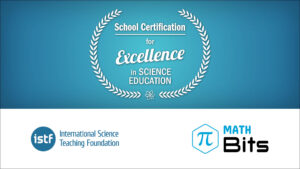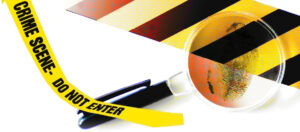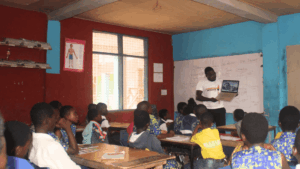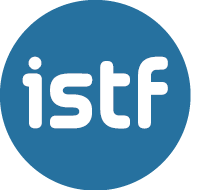
Science Bits’ approach to student assessment in the last section of its 5E methodology is not common in a traditional sense. If seen from a traditional perspective, one may think that their exams often include questions about topics which haven’t been covered in the units. Indeed, these exams pose new challenges or problems that may be solved by applying the newly acquired knowledge… provided that this knowledge has been integrated comprehensively. In new situations, the newly acquired concepts can only be used effectively if they have been properly understood. Rather than simple memorization, the ability to put new knowledge into use is the indication that genuine learning is taking place.
Therefore, and in line with its active, skills-based learning proposal, it is worth stressing how Science Bits approaches learning assessment. In Science Bits’ exams, students are not expected to memorize scientific knowledge, but rather to solve problems by actively applying scientific concepts, procedures, and attitudes. These exams, like the OCDE’s international student assessment tests (PISA), bring different competencies into play, not only the ability to memorize data and procedures.
To get a clearer picture, students can take these tests using their notes, course books, or any resources that may be available. Indeed, during the exam the Science Bits learning unit is available at all times (students have access to it). Additionally, they can also use the Internet. In fact, access to the World Wide Web is essential to solving the test questions.
Therefore, some of the test questions require students to be tested in what the OCDE and PISA call Digital or Interactive Competency: the ability to look up and find information on the Internet and use this information combined with the students’ own knowledge to solve a problem. For example, a test question in the Formed by Cells unit starts by informing students that antibiotics are drugs used to specifically attack the walls of prokaryotic cells. Next, students are given a list of diseases and have to select the ones that can be treated with antibiotics. In this unit students have learned about the different types of cells and the living organisms that have them. Of course, they do not know what causes these diseases. But they only need to do a quick search on Wikipedia to find out, for example, that malaria is caused by a parasitic protist. Then, the student must remember that protists have eukaryotic cells and infer therefore that antibiotics cannot be used to treat this disease (which is a relevant piece of knowledge for everyday life). In short, to complete a 5E unit test, students have to think: it is not just their ability to memorize facts which is assessed, but also their ability to apply these facts and thus demonstrate understanding.
In a traditional exam, an analogous question would have required students to write down the characteristics of the prokaryotic cell. Most students solving this question have just memorized the facts from their course book, and many of these will forget them shortly after the exam. This is not the type of learning that Science Bits promotes. Our project is based on developing scientific skills because science is not a body of immutable facts that have to be memorized (actually, scientific knowledge is constantly evolving), but an exciting way to obtain new knowledge and understand the world around us, with a critical mind and a proactive attitude. We believe this type of scientific learning is useful and beneficial for all students, regardless of the career path they choose.
Obviously, not all students are used to this type of assessment. Some may even say that it appears to be more difficult. In reality, the assessment is not more difficult; it is simply different. Students cannot pass these tests by passively memorizing facts from the course book and reciting them from memory. They need to integrate the new concepts, understand their implications, and use their thinking ability to be able to apply them effectively to new situations. That is why we recommend that special attention be paid to the “Evaluation” section when students use Science Bits for the first time. One of the best ways to prepare students for these tests is to work on the unit thoroughly and do the linked activities from the “Explain” section. Indeed, many activities in this section are similar in nature to the test questions.

Secondary teens doing a Science Bits exam.
Additionally, we recommend that the first tests taken with Science Bits are also used as learning tools, not only as evaluation tools. That is, students need to learn how to tackle these types of tests. These tests, by the way, are more akin to what life has in store for us than those proposed by traditional exams. We strongly recommend that students review the test together in class and solve the questions with assistance from the teacher. In this way students realize that the test was not that difficult after all; it was only a matter of “opening their minds”, noticing the resources at their disposal, and effectively using their own skills to solve the questions posed. Once the exam has been graded and reviewed, we think it is a good idea to let students take the test again, but this time from home: the teacher can reset the exam and have students take it as part of their homework.
With this type of assessment, however, it is important to be consistent and not to give in. We know from experience with thousands of schools around the globe that the initial misgivings are eventually overcome and that this test method finally becomes a favorite among students. In fact, most end up admitting that they wished all subjects were assessed in this way.
In our present world, access to information and knowledge knows no boundaries (whether from a reliable or unreliable source). Both the critical ability to discern between appropriate and inappropriate information and the ability to use this information to effectively solve personal or work-related problems are skills that still need to find their space in education. This is the philosophy behind our science teaching and learning project, and the way we choose to evaluate students is in line with its underlying principles.













Muchos Gracias for your forum.Much thanks again. Want more. Gearin
Muy buena iniciativa , les felicito de corazon
¡Muchas Gracias José Manuel!